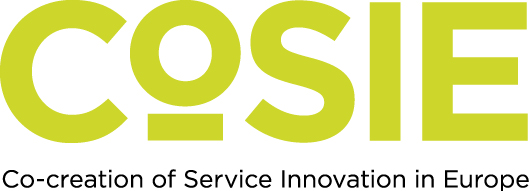No Time to Waste
The neighbourhood Plantsoen in the municipality of Nieuwegein consists of four apartment buildings (social housing), each with 90 households. For many years, the neighbourhood has been facing multiple problems concerning lack of participation, integration and social cohesion. Almost half of the families receive some kind of support: unemployment benefit, youth care etc.
To create sustainable change reciprocity and participation are necessary. “Old school“ support or interventions have not lead to change in the past years, no matter what the intensity of the intervention was.
The approach “Neighbourhood”, (a plan from a multi-disciplinary steering group) has the ambition to heighten the quality of life and physical surroundings in a sustainable way.
In the door-to-door talks (visiting already more than half of the households), one of the main matters of discontent was the amount of litter in the neighbourhood. 100 % of the inhabitants mentioned this as first priority. Knowing this, the municipality has intensified cleaning and garbage pick-up in 2018. To no avail however, shortly after all has been cleaned up, there is new rubbish.
The pilot for co-creation will focus on banishing waste and is a spearhead for the “Approach Neighbourhood” at the moment. We want to:
1. Re-instating trust in the relationship between inhabitants and municipal government through the process of co-creation.
2. A clean (sustainably clean) environment where all parties involved take responsibility to their capabilities.
Waste is not only waste. Waste is going to be used as a first topic within the CoSIE pilot to build a partnership between residents and the government/ involved organisations.
Pilot Actions
Spring 2019: Three meetings with 8–12 volunteers assessing the root of the waste problem. Brainstorm sessions, decision-making and small workgroups to start chosen experiments.
Autumn 2019: Analysis of data sets and social media.
Experiments in summer and autumn 2019:
- Opening the containers (so that inhabitants do not need to have their card on them to dispose of waste).
- Making a calendar with events for the neighbourhood and planning and organizing “waste- events” to increase awareness.
- Communication students develop, in co-creation with inhabitants, a communication channel that works.
- Social return developing (in co-creation with inhabitants) “fun” garbage cans for the neighbourhood
2020: Workshop for collaborating partners.
Target Groups and Collaborators
All households in the neighbourhood are – in the end – target group. Starting with a small group of households. We hope that in the process of co-creation this group will expand. All involved parties (municipality, housing corporation, youth work, social work, police) are collaborating with the approach. In the co-creation pilot, they are also target groups: participation in co-creation and collaboration of these organisations is essential for success.
Results
One of the most important result up until now is that the area is noticeably cleaner. Inhabitants as well as other stakeholders have observed this. Besides that, inhabitants seem to speak up more and more when there is – yet again – waste in the surroundings of their apartment buildings.
We are very much in process with our co-creative experimenting. We will update you when we know more. Making the waste-containers accessible without a pass seems to work. We are still observing this.
Observations
Co-creation is not easy: it asks many skills from professionals as well as from the service users. It cannot be expected, that all people possess these skills, at least without proper training to the method.
Communication is essential in co-creation. Offline communication needs to be quite structured; online communication is in this pilot non-existent.
Collaboration between professionals and inhabitants is the very key to success: Do we all understand the terminology in the same way when we talk about co-creation?
Future
We are launching a PR campaign in collaboration with the neighbourhood of our pilot, to attract more inhabitants to become active.
To develop plans for Nypels for the coming years, and to give the neighbourhood the attention it deserves, shared ambition will be defined among stakeholders. A living lab session will be organized to do so in May 2020.
